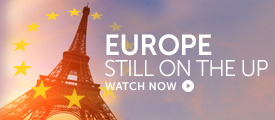According to the L2 Digital IQ Index, Marriott has the highest digital IQ of all luxury hotel brands, at 162. This is a considerable margin above the second ranked hotel group, which has been given a Digital IQ of 137. An understanding of how to engage online is vital to the success of a hospitality business today, but given that traditional hotel brands’ strongest skill is in service, they will always be at a disadvantage to specialised tech companies in the digital arena, as our hospitality experts discuss:
The Index assesses the digital competence of 55 Luxury Hotel brands by looking at the ‘effectiveness of brand site and E-commerce investments’, ‘Search, display and email marketing efforts’, ‘Social Media presence, community size, content and engagement,’ and ‘Mobile compatibility, optimization and marketing on smartphones & tablets’.
One reasons for Marriott’s high score is its online visibility. The study shows that in a Google search made from the US, Marriot is the most visible brand when looking for hotels in The Americas and Asia, and top three in Europe and Asia.
The study found that 81% of online travel booking is abandoned before completion. The study highlights frustrations during the booking process as key factor in and says that nearly 40% of sites surveyed required four or more clicks from search result to reservation.
Another barrier in the booking journey is the device used. According to the study, 46% of travellers who performed research via a mobile device did not execute their booking on that same channel.
If you’ve been sent to this page and you’re not yet on the circulation list to receive these regular briefings and you would like to sign up, you can do see here. It’s free.
Video clips produced by ybc.tv for the Hospitality Channel, including interview from industry conferences such as the IHIF conference as well as specific Hospitality Channel shoots.



